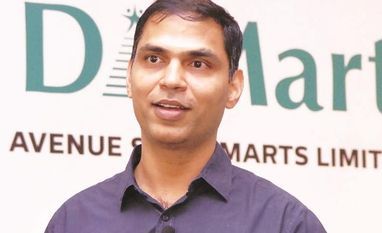Last month, Avenue E-commerce became a subsidiary of Avenue Supermarts, from being an associate company. The e-tail business of the firm, which runs D-Mart, was an issue for its board when it started three years ago. The concern was the level of cash-burn it takes to build an e-tail business. But as it completed one year of operations, the board realised that it was not burning cash to the level to become worrisome.
Neville Noronha, managing director and chief executive officer of the company, spoke to
Raghavendra Kamath & Abhineet Kumar on the e-tail business and growth plans for its bricks-and-mortar operations. Edited excerpts:
What is your take on e-tail, one year after the operations began?
It is too early to say. But one thing is for sure that it is tougher than bricks-and-mortar. In grocery e-tail, it is less to do with pricing and more to do with service, freshness and assortment. And a lot of bricks-and-mortar values are also relevant in grocery e-tail.
In a general e-tail marketplace, one buys one or two items. When an individual buys a mobile or other electronic item online, they already know the brand and go there for the price. But in grocery it is different. In grocery, you are doing a laundry list, buying 15-20 items. Therefore, your ability to memorise prices are less. And ticket price is also low. The nature of business in grocery e-tail does not allow customers to do apple-to-apple comparison on everything. So, beyond a point, customers start evaluating other things in different grocery e-tail platforms. Hence, pricing will not win the game.
How long will it take to perfect your e-tail model?
It will be difficult to predict that. We started our bricks-and-mortar operations in 2001 and still, after 17-18 years, we are learning. We are not even thinking when our e-tail will make money. We have a simple belief that we have to be in the e-tail business and we will learn as we move. We are also sure that e-tail is not the way forward. This country is not just Mumbai. It is actually in hinterland. We are still $2,000 per capita country and bricks and mortar has a huge role to play. We see e-tail opportunity in big towns, where we cannot have D-Mart stores because of space and cost issues.
How is your bricks-and-mortar business progressing?
Unlike e-commerce, bricks-and-mortar is not as if winner takes it all. It is a large opportunity. One retailer cannot offer everything. In the long run, everyone will succeed even if they are struggling today. With the GDP growing, consumption will grow and retailers will benefit. This is very clear that there is huge headroom to grow for bricks and mortar.
Do you plan to capture the opportunity by accelerating store expansion?
We used to open 10-15 stores a year earlier. In the past two years, we have opened 21 stores. In this financial year, we have opened 10 stores so far, but we hope to reach 20 by the end of March. The March quarter usually has the highest number of openings. Now, we aspire to launch 30 stores annually from coming years. This is what it should be.
Would that mean changing your ownership model?
We will continue with ownership of stores model. But if leasing stores help us accelerate growth, we are open to it. Currently, we own 122 stores and 18 are on lease. We want the ratio between owned and leased stores to be at 80:20. We prefer long-time lease of 30 years, as it will help in continuity. Stores actually take time in making money.
Any particular category that is doing better than others?
General merchandise and apparel has been performing well in the past couple of quarters for us. Discretionary spending has made a comeback in the past three-four quarters and it is a good sign. I do not know whether it is a national trend but it is true for us.
Share of private labels is very low in your business. What is your plan?
We believe that Indian entrepreneurial ecosystem is very strong. So, we are not very ambitious about private-labels share. That is why its contribution is almost insignificant today. There is a team working on it but we are not very gung ho about our private label business in fast-moving consumer goods (FMCG) sector. In non-FMCG, it does not matter whose labels it is as we do not sell premium brands in apparel.
Unlock 30+ premium stories daily hand-picked by our editors, across devices on browser and app.
Pick your 5 favourite companies, get a daily email with all news updates on them.
Full access to our intuitive epaper - clip, save, share articles from any device; newspaper archives from 2006.
Preferential invites to Business Standard events.
Curated newsletters on markets, personal finance, policy & politics, start-ups, technology, and more.
)